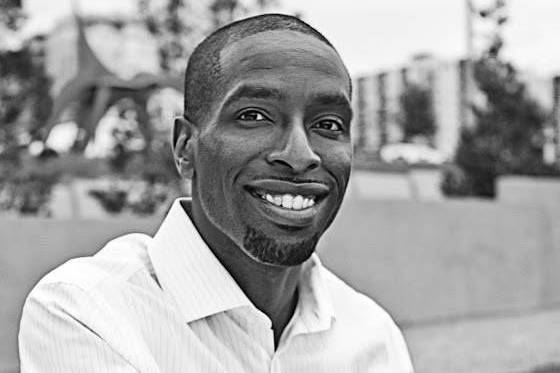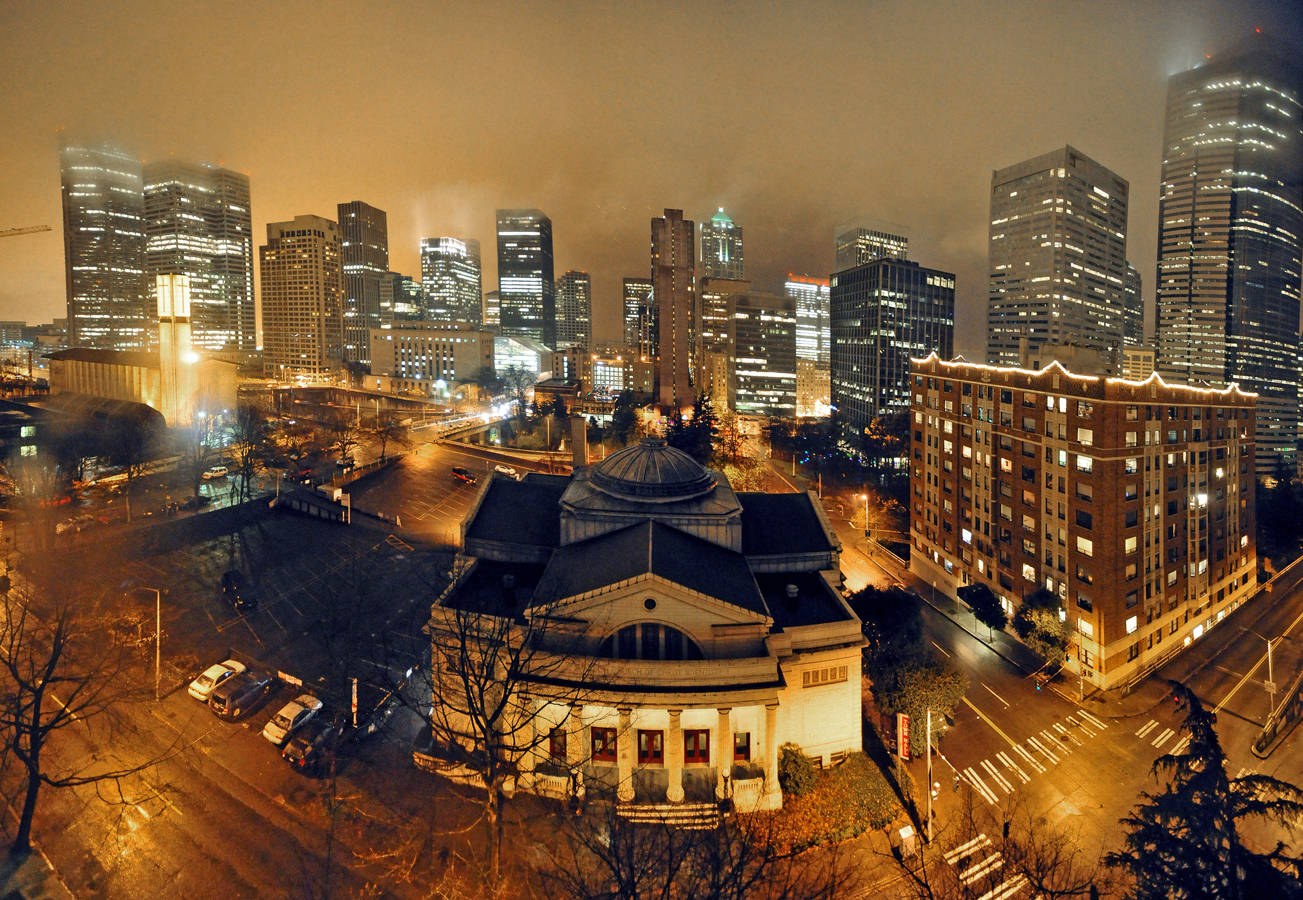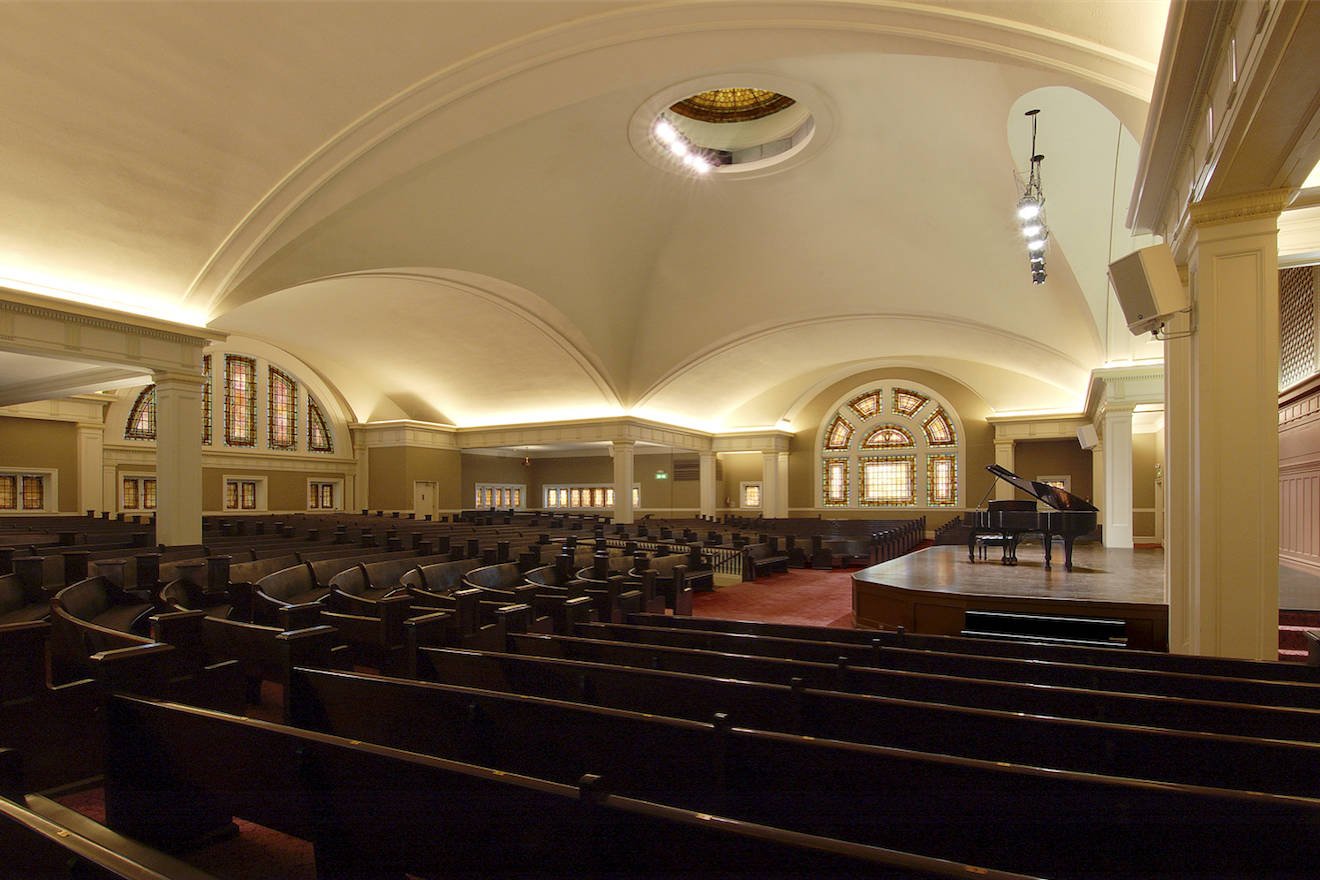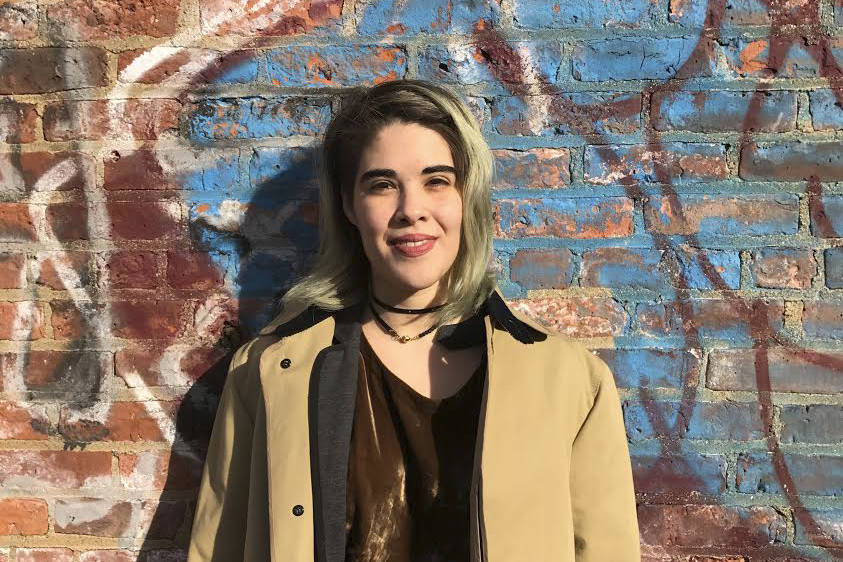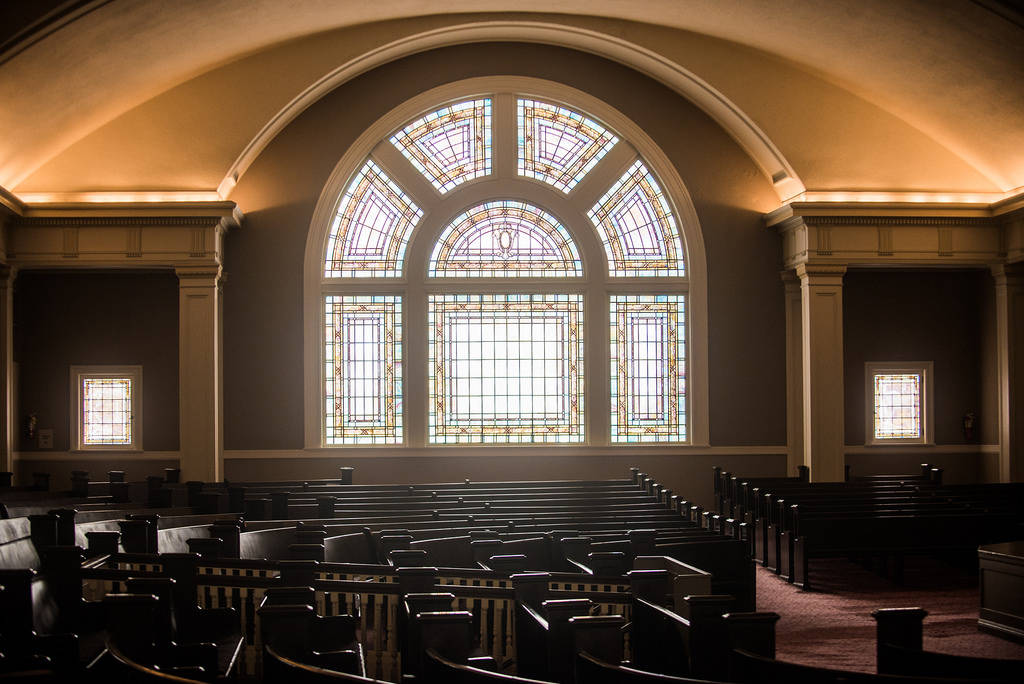“[Town Hall Seattle] realizes that education does not end with a degree or credential,” journalist Marcus Harrison Green says. “Education is every day of your life.” As Town Hall’s most recent Scholar in Residence, Green was immersed in the organization’s range of programs and diversity of thought. By engaging in civic dialogue and exploring events across a breadth of subjects, both in- and outside of his normal range of interest, he has used Town Hall as a springboard for new ideas and interdisciplinary projects.
Through the Scholar-in-Residence (SiR) program, Town Hall helps support burgeoning thinkers like Green. Along with the current Artist in Residence, Elisa Chavez, Green was given a key to the historic building, and with it, free access to attend events, curate programs, and expand his education. At the end of his three-month term, he presented an original work inspired and shaped by his experience at Town Hall.
“The emphasis is on process rather than final result,” Town Hall Curator of Lectures Edward Wolcher says. “Ideas are developed in public conversation with the audience. … Scholars in Residence act as audience surrogates in this respect, absorbing the knowledge that comes through Town Hall.”
With a calendar of more than 400 events every year, SiRs have ample opportunity to tailor their experience. By partnering with community non-profits such as Seattle Arts & Lectures, University of Washington, Forterra, Seattle Public Library, ACLU of Washington, Seattle Tilth, and Earshot Jazz, Town Hall events span topics including music, science, human rights, sustainability, politics, literature, and everything in between.
As co-founder of the South Seattle Emerald—a community news website dedicated to shining light on issues of race, equity and justice—Green offered his own unique perspectives about societal inequality, driven by his deep community ties to South Seattle’s under-represented African-American population. A former Reporting Fellow for YES! Magazine and co-founder of The People’s Press Club of Seattle, he was also a recipient of Crosscut’s 2015 Courage Award for Culture.
With his residency at Town Hall, Green pushed his creative boundaries and expanded his audience even further. Over his three-month term, he stepped out of the journalistic medium to explore the power of theater to create civic discourse. For his final program, the “Findings” event, as Town Hall calls it, he presented his original play entitled Caucasians Anonymous, examining whiteness and white supremacy and the role Caucasians must play in the demolition of racism. Afterwards, participants discussed their own experiences with racism and oppression.
“Town Hall’s broad audience and its populist ethos helps connect the work of our scholars to the general community,” Wolcher says. “There is no other institution where writers, academics, and journalists have such access to multi-disciplinary content and so many cross-disciplinary opportunities to explore their work.” In addition to Green’s presentation, previous Scholars in Residence have embraced this boundary-defying spirit to offer immersive events, including breakout discussions and art making.
During his residency in 2013, scientist David Montgomery collaborated with Artist in Residence Ellen Forney, a cartoonist, to break down barriers between visual art and hard science—they joined onstage to discuss how storytelling shapes each of their bodies of work and how it can unite people across sectors. In 2015, writer Brangien Davis took her audience on a multimedia exploration of Town Hall’s long-dormant 2023-pipe organ—exploring the past, present, and future of the musical behemoth.
Selected for their artistic accomplishments and diverse perspectives, other previous SiRs have included award-winning journalist Hanna Brooks Olsen; former KUOW radio host Steve Scher; multidisciplinary artist and UW philosophy professor David Mitsuo Nixon; and author Lesley Hazleton. Many continue to play an active role in Town Hall’s programming—serving as moderators, presenting independent projects, activating ideas, and moving conversations forward.
“[This residency has] helped introduce me to different artists and thinkers… it’s put their work front and center and helped to influence my art,” Green says. [Town Hall is] a place for not only dialogue, but a sanctuary for knowledge.”
Town Hall Seattle’s historic building is turning 100, and it needs some love. A top-to-bottom renovation will preserve the landmark’s historic look and feel while making critical infrastructure, seismic, and performance advances. With state-of-the-art lighting and sound systems, a new downtown-facing entrance, and new multilevel restrooms, Town Hall will be more accessible, more comfortable, and more vibrant than ever. Learn more and get involved at townhallseattle.org.
